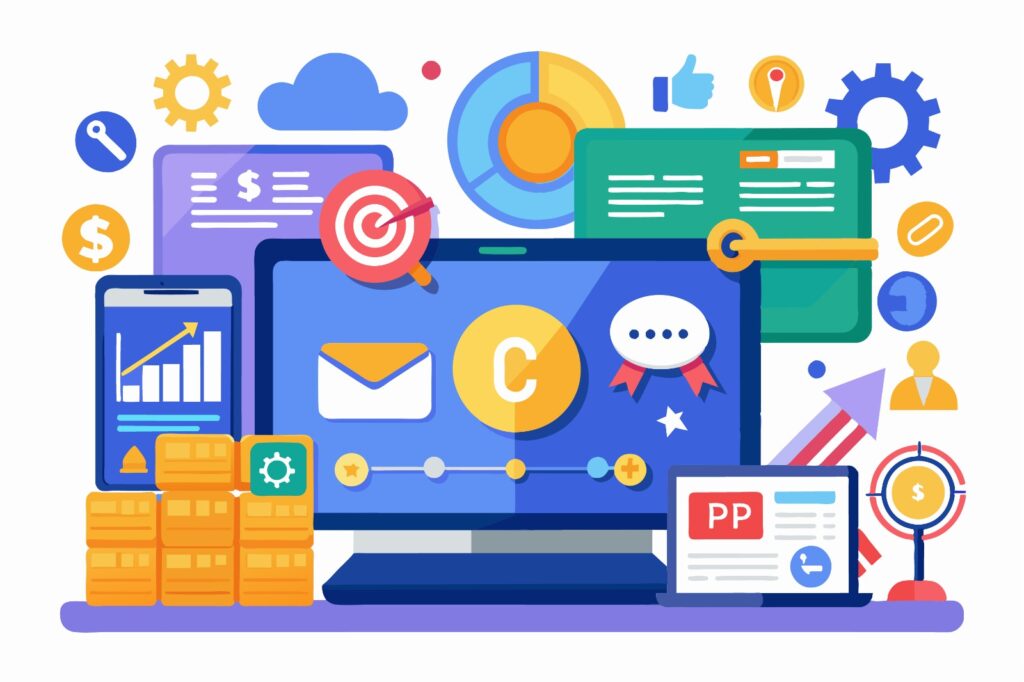For businesses looking to boost their online presence, pay per click advertising (PPC) offers a targeted and effective way to reach customers. Whether you’re running a small business or managing a larger brand, understanding PPC advertising can be a game changer for your digital marketing efforts. This guide will help break down the basics of PPC and how you can use it to grow your business.
What is PPC?
At its core, pay per click advertising is a method where advertisers pay a fee each time their ad is clicked. Instead of earning visits organically, PPC allows businesses to buy visits to their site. It’s a direct way to bring potential customers to your page, making it a valuable tool in digital marketing. The beauty of PPC advertising lies in its precision—you only pay for actual engagement, ensuring your advertising dollars are spent wisely.
How Does PPC Advertising Work?
PPC operates through a bidding system where advertisers compete for ad placements. When someone searches for a term related to your business, your ad may appear at the top of search engine results. The fee you pay, often referred to as cost per click, is determined by the competition for the keyword and the relevance of your ad.
For successful results, businesses often rely on conversion rate optimization—ensuring that the clicks they receive turn into actions, such as purchases or sign-ups. Without this focus, even a well-targeted PPC ad could fall short of delivering value.
What is Google Ads?
Google Ads is the most widely used platform for PPC advertising. It enables businesses to display ads on Google search results and across Google’s network of partner sites. When potential customers search for products or services, your ad can appear at the top, allowing you to capture their attention instantly.
With Google pay-per-click advertising, businesses of all sizes can showcase their offerings directly to people searching for similar products. The power of advertising on Google lies in its reach—millions of people use Google daily, providing vast opportunities for visibility.
How PPC Works in Google Ads
When you run a PPC campaign using Google Ads, it’s essential to focus on relevant keywords that potential customers might search for. Once you have your list of keywords, you’ll set a budget for how much you’re willing to spend for each click.
Google uses a combination of your bid amount and the quality of your ad to determine its placement in search results. A strong understanding of Google Ads and how the bidding process works is crucial to ensuring you get the best return on your investment.
How to Do PPC with Google Ads
Starting a PPC campaign with Google Ads requires careful planning. First, you’ll need to set up an account and decide on your campaign’s goals. Then, focus on your target audience and select keywords that align with your business.
Performing thorough PPC keyword research is vital, as your keywords will determine the success of your ads. Once your campaign is live, monitor it closely, keeping an eye on metrics like click-through rates and conversions to ensure your ads are performing well. If needed, make adjustments to improve your results.
PPC Keyword Research
The success of any PPC campaign hinges on proper PPC keyword research. The goal is to find the terms that potential customers are using when searching for services or products you offer. Long-tail keywords, which are more specific, can often lead to better conversion rates, as they target a more focused audience.
For instance, instead of using broad terms like “shoes,” you might target “running shoes for women,” which narrows down the search to people specifically looking for that product. Using tools like Google Keyword Planner can help you find these high-value keywords and set the foundation for a successful campaign.
PPC Campaign Management
Managing a PPC campaign involves more than just setting it up and letting it run. You’ll need to monitor performance, adjust your bids, and make changes to improve results. If you’re working with a ppc ad agency or ppc management services, they’ll take care of these tasks for you, but it’s important to stay informed about the key performance indicators (KPIs) like cost per click and conversion rates.
Testing different ad copy through A/B testing can also help improve your campaign’s performance, as it allows you to see which version of an ad resonates more with your audience.
How to Get Started with PPC
If you’re ready to dive into PPC, the first step is setting up a Google Ads account. Once your account is live, focus on performing detailed keyword research to ensure your ads reach the right audience. From there, you’ll need to craft compelling ad copy and set a budget that aligns with your marketing goals.
As you become more familiar with Google ads how it works, you’ll find opportunities to optimize your campaigns and improve results. Remember, PPC is a dynamic strategy—it requires continuous monitoring and fine-tuning to achieve the best outcomes.
Conclusion
PPC advertising is an essential tool for businesses looking to increase their visibility and drive targeted traffic. By understanding the fundamentals of pay per click in digital marketing and mastering platforms like Google Ads, you can create impactful campaigns that deliver measurable results. Whether you’re new to online advertising or looking to fine-tune your existing efforts, PPC offers a powerful way to connect with your audience and grow your business.



